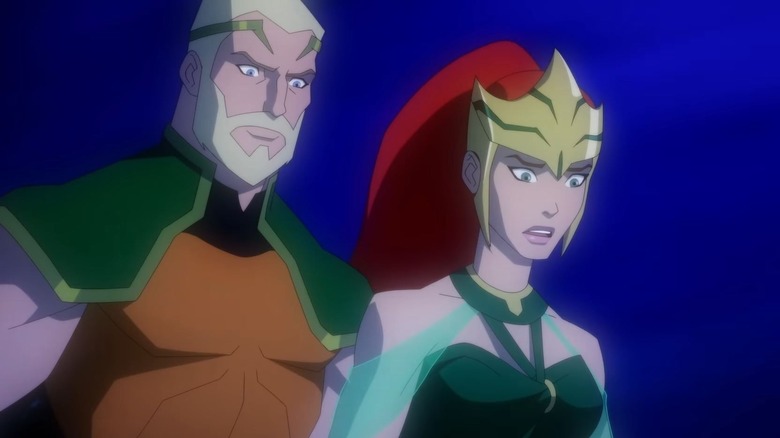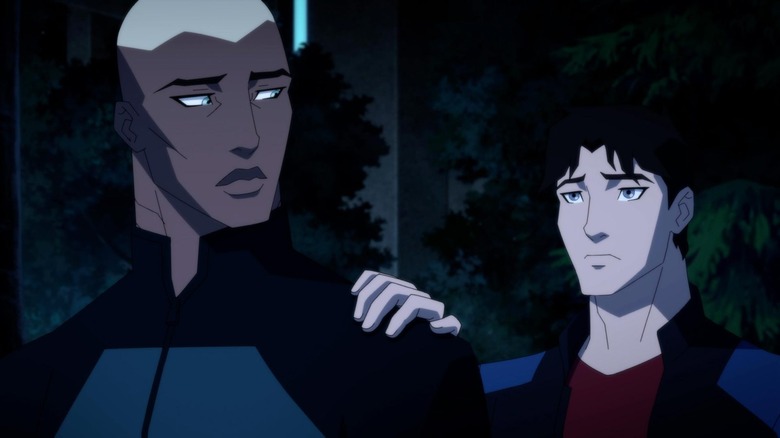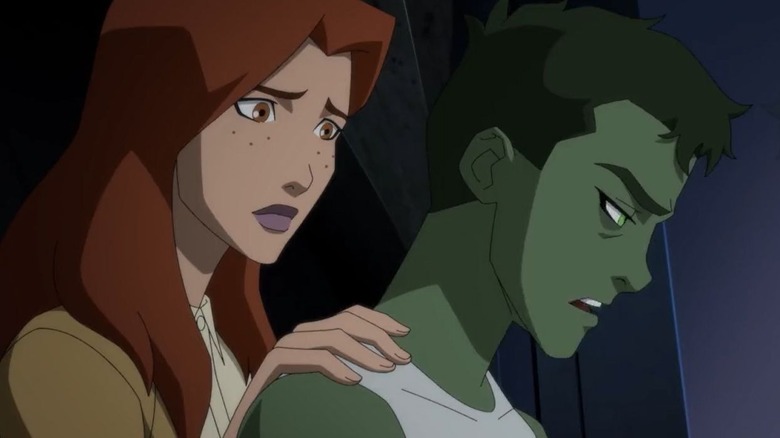Young Justice Season 4 Part 2 Review: A Focused, Emotional Premiere
"Young Justice" returns after an extended break with a new set of episodes that continue to show how much the characters have evolved in the ten years since the series premiered, and how much the series stands apart from other superhero shows.
The three-episode premiere kickstarts a new story arc that is completely separate from what came before, exploring a previously unseen side of the DC universe in exciting ways, while still catching up on old friends and lingering plot threads. If you've never watched the show before, this is a horrible place to start because you'll be lost, but it's never a bad time to start watching this delightful superhero cartoon.
Where the first half of the season focused on original team members Miss Martian, Artemis, and then Zatanna, the new episodes focus on the new Aquaman, Kaldur'ahm. Turns out, trying to unite all the oceans is kind of difficult! Especially when the representative of one of the city-states is King Nanaue Sha'ark (who was apparently classmates with Kaldur!) and he just wants to fight everyone. While trouble is brewing and Ocean Master plans his evil return, the appearance of a stranger calling himself Arion (like the first king of Atlantis) complicates things for the former and the present Aquaman.
Everyone needs a mental health break
While all this is happening, Kaldur is still grieving the loss of Superboy, the latest in a series of losses for The Team, and the Justice League that Kaldur refuses to take the time to properly process. From the very first episode of the show, Kaldur has been the rock that holds the team together, but everyone has their breaking point and he's nearing his. Mental health is an aspect of superhero stories we're just now starting to see becoming prominent, but it is still rare to see it portrayed in cartoons, especially with this level of nuance and care. Not just in Kaldur's own denial of his own struggles, but in how Miss Martian or Beast Boy or even Robin are dealing with the years of seeing friends and loved ones die in battle.
Speaking of Beast Boy, we continue to see him push everyone away while refusing to seek help, with a large chunk of the third episode dedicated to confronting his PTSD. Though he insists this is just how he deals with grief and it's worked every time a new hero died, it is clear something is different this time. Miss Martian even throws an intervention with the help of other heroes, and we get to catch up with a grown-up Static Shock and Blue Beetle, while we are also properly introduced to Beast Boy's former teammate Robot Man.
Khary Payton gives a fantastic performance as the Doom Patrol hero, one that is familiar enough to fans of the manic, profanity-ridden take by Brendan Fraser in the live-action "Doom Patrol," while different enough to feel like it belongs in an alternate universe. We learn that this version of Cliff is also dealing with his own trauma after he became the only surviving member of the Patrol following a suicide mission. It's a short scene, one that is not even technically focused on Robot Man, but it serves to both expand the world of the show and its roster of heroes, but also paint a picture of the dangerous lives these heroes live.
Checking in with old friends
Like the first half of the season, the three-episode premiere follows a more focused story involving just a handful of characters. This gives a better grasp of what is going on, and even makes the jumping around to check in on other storylines feel more organic since we spend less time on those. It ultimately feels more like a comic book tie-in that adds to the experience rather than a forced juggling of multiple important missions at the same time.
In the second episode, we check in with Halo as they explore their past self's Islamic background and ponder whether religion is something they should also consider themselves. It is astounding and refreshing to see an animated show on a major streaming platform talk openly and with nuance about religion, not trying to explain it or interrogate it, but simply examine the different things it can mean to different people.
That same episode ends with Halo reaffirming their non-binary identity and talking about choosing their preferred pronouns. "Young Justice" has always been a show in tune with teenage issues and experiences, and now that it is free from any possible censorship on Cartoon Network (even if that network did give us the perfect and queer "Steven Universe"), the show is free to become the best example of diversity and representation in superhero stories yet. This extends beyond Halo or even Kaldur himself, but to La'gaan, who is brought back into the spotlight in this story arc and shown to be in a loving polyamorous relationship.
The premiere also catches up to Superboy, who is alive! But also stuck in some kind of purgatory. It is unclear where this story is going, but it is clear it is leading to something big, as the Legion of Super-Heroes continues to make appearances and tease some big future event that they're making sure happens properly. We'll have to wait and see, but for now, it is good to have "Young Justice" back on our screens.


